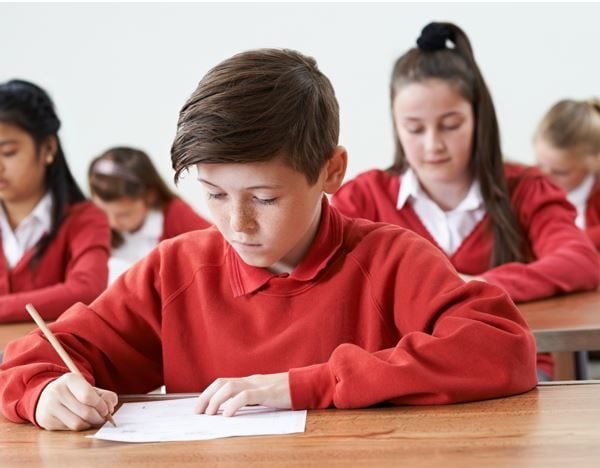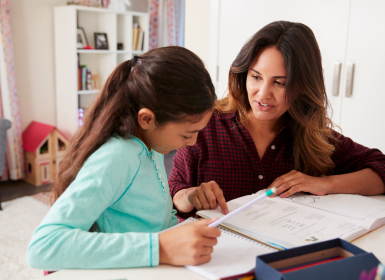
School reports provide an important opportunity to understand of how your child has performed throughout the year. Every state uses a different grading system to report on student progress so it’s important to read the guide from your school to understand how your school awards grades and if in doubt, ask for help from your school. In New South Wales, public schools use the Common Grade Scale from primary school through to Year 10. This scale uses A-E grades to explain a child’s learning progress.
Understanding Report Grades
A – Extensive knowledge and understanding of content. This means your child is exceeding their curriculum learning goals and may benefit from extension activities to maintain engagement in learning.
B – Thorough knowledge and understanding of content and can apply these skills in most situations.
C – Sound knowledge and understanding of key content areas. This means your child has met their curriculum learning goals and is performing at their expected grade level – something to celebrate! Continued practice will help your child deepen their understanding and enable them to apply their skills in different situations.
D – Basic knowledge and understanding of key content areas. This means your child has not met all their curriculum goals and may benefit from additional support to target specific knowledge gaps. Speak with your child’s teacher about learning support options at the school or consider tutoring support.
E – Elementary knowledge and understanding of few content areas. This means your child is having significant and consistent difficulties in some aspects of their learning and may benefit from further investigation. Your child’s teacher may recommend an educational assessment with a psychologist, which can help to understand your child’s specific strengths and support needs.
Most schools will use this grading from Year 1 onwards. For kindergarten or the first year of school reports tend to grade children against what is age appropriate, so parents can still get a good idea of whether your child is progressing as expected.
Activity to Help You Understand Your Child’s School Report
Here is a great exercise for parents to demystify and better understand what the end of year school report actually means.
Take a piece of paper and fold it into four and label each quadrant with the following headings. “The good”, “The not so good”, “Effort” and “Where to next?” and re-read your child’s report to identify where the main changes need to occur.
The Good
Read your child’s school report and ask yourself these questions to help you identify and understand what they are doing well.
- Where are your child’s strengths?
- What areas were stand outs?
- Where can you celebrate?
The Not So Good
Once you have identified your child’s strengths, it’s time to identify their challenges or barriers. Read your child’s report again and ask yourself these questions.
- Where were the main difficulties? Look for a pattern here.
- Is it content your child doesn’t know (a tutor could help here)?
- Is your child struggling to follow and participate in class discussions (a speech pathologist could help here)?
Effort
- What type of effort was applied? You may have a different view from your child’s teacher and now is the time to be honest.
If effort is the main concern here then creating time for improvements to be possible is the number one priority.
Where to Next?
- Do we need more time at home for work to get done?
- Do we need to incentivise learning?
- Is the help for our child working?
- Do we need more or different help?
- Do we know why our child is struggling to learn?
There is not one straight answer to understanding school reports and it will be different for each child and family. But this exercise is helpful to provide you with the confidence to seek the support your child will need next year.
It may be an assessment to find out more, less/more/different tutoring, or changes at home to create more time or prioritise/incentivise learning. January is a great time to think about what to change in the next year for more success for your child. Take another look at the school report, talk with your child and make a plan for the year ahead.
Learning Links provides assessments to identify your child’s individual needs and determine if they require additional help, including specialist literacy or numeracy classes, speech therapy or psychology support.




